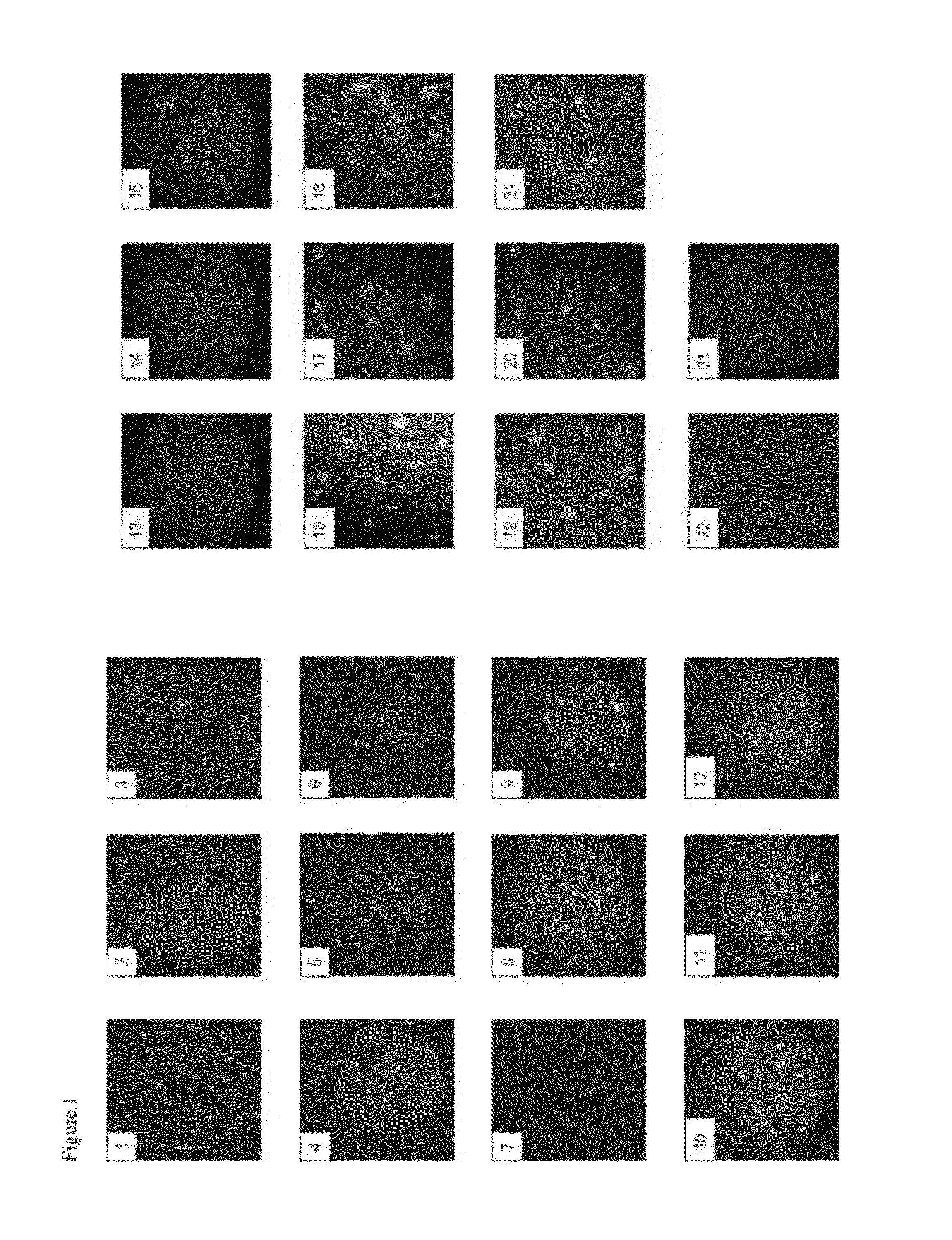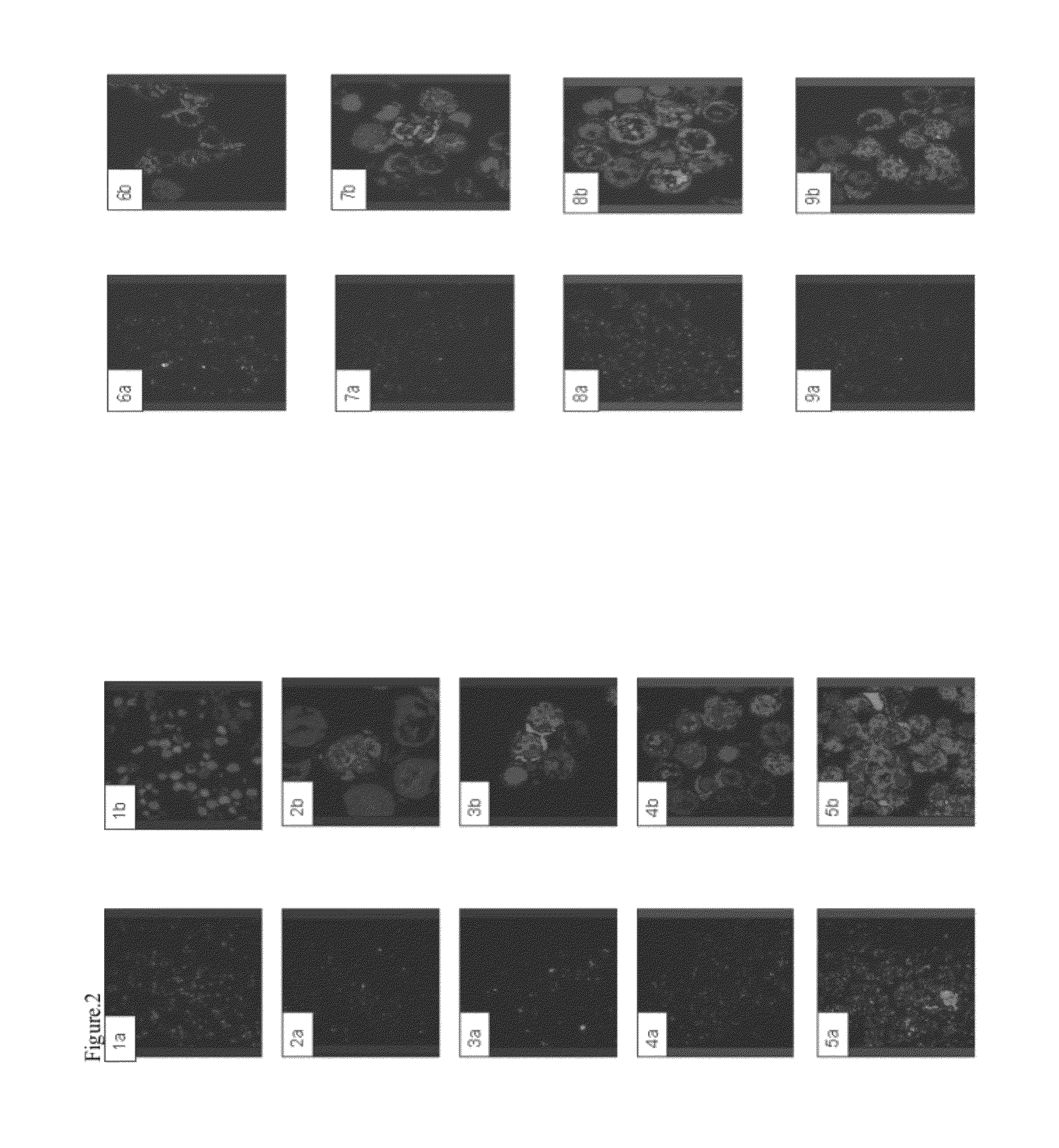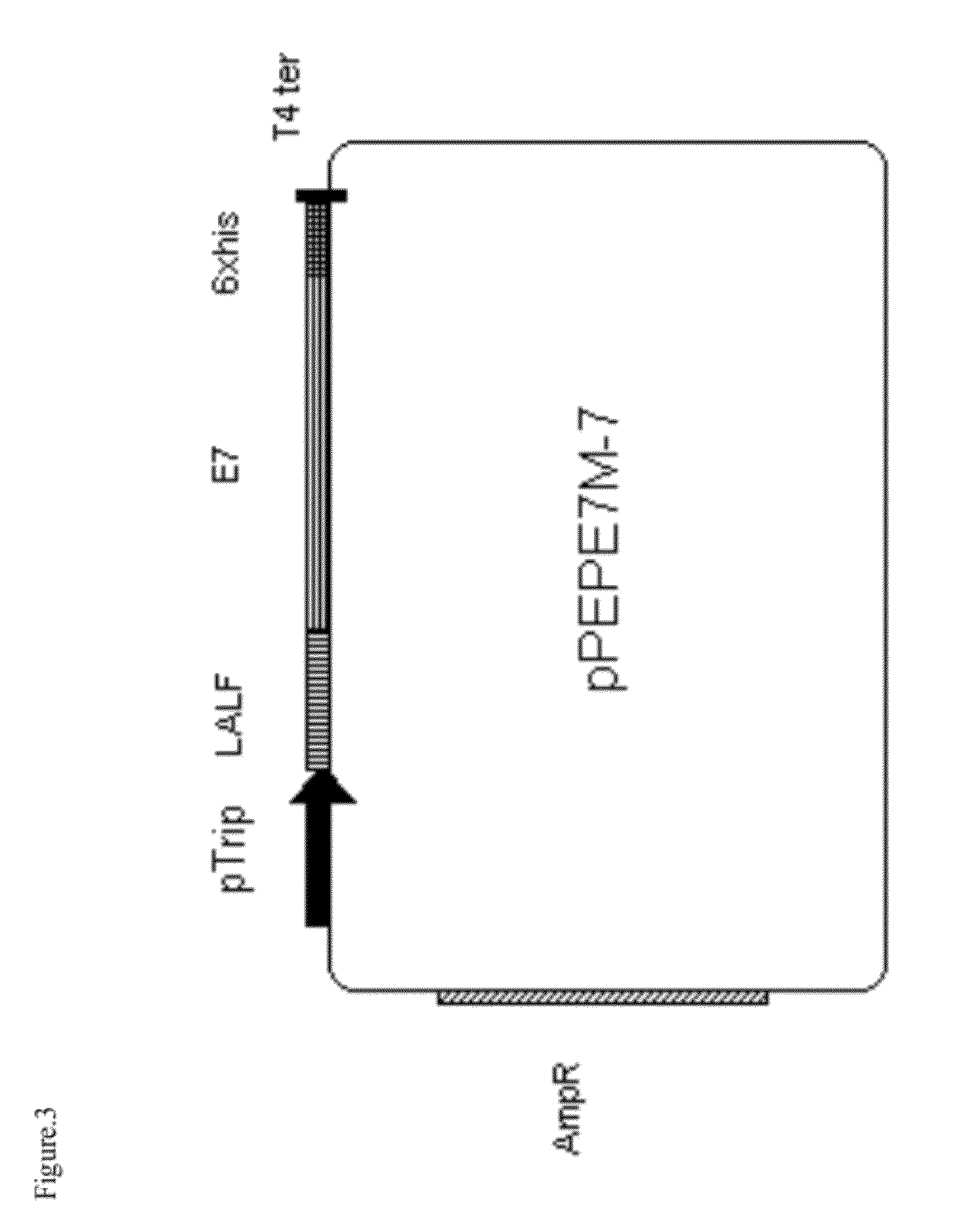Cell penetrating peptides and its use fused to biomolecules with therapeutic action
a technology of cell penetrating peptides and biomolecules, which is applied in the field of cell penetrating peptides and its use fused to biomolecules with therapeutic action, can solve the problems of poor cell penetration of most drugs, major limitation in cell development, flat growth, etc., and achieve the effect of preventing further viral proliferation
- Summary
- Abstract
- Description
- Claims
- Application Information
AI Technical Summary
Benefits of technology
Problems solved by technology
Method used
Image
Examples
example 1
Internalization of CPP LALF or their Analogues to Cells with Different Histological Origins
[0034]Different cellular lines were used in this realization (Table 1). Cells grown on sterile glass cover slips of 22 mm overnight at 37° C. and 5% of CO2 with RPMI 1640, 10% inactivated calf fetal serum and 2 mM de glutamine. Then, 25 or 50 μM de CPP LALF or their biotinylated analogues L-2 y L-20 added and incubated at 37° C. and 4° C. in different times (10 min, 20 min, 30 min, 1 h y 2 h). Wash briefly with PBS and fix cells by 4% paraformaldehide per 20 min at room temperature. Wash in three changes of PBS. The permeabilization of the cells was with 0.5% Tritón X-100 for 15 min a room temperature. Wash in three changes of PBS. The cells were incubating for 1 hour in 1% blocking SFB in PBS at room temperature. Wash in three changes of PBS. Incubate with 1:50000 in PBS streptavidin-fluorescein for 45 minutes in a dark chamber. Wash extensively with PBS. Mount cover slip with aqueous mountin...
example 2
Internalization of the Analogues L-2 and L-20 to Murine Splenocytes
[0037]For the splenocytes isolation, the mice C57BL / 6 were sacrificed by break-up of the cervical and the splenocytes were removed aseptically. The cellular suspensions of the animals by each group met in pool and they were homogenized smoothly. The splenocytes were washed and the erythrocytes were lysed with a solution of NH4C10.83%. After washing, the splenocytes are divided en different tubes with 20×106 of cells in 10 mL of fresh medium RPMI 1640 supplemented with 7% de fetal bovine serum. Each preparation was incubated with 0.8 mg of the biotinylated peptides L-2 (278 μM) y L-20 (280 μM) in different times: 10 min, 30 min, 1 h and 18 h. The incubations were at 37° C. and 5% de CO2. The cells on sterile glass cover slips were fixed, permeabilized and treated with propidium Iodide for to stain the nucleus and with streptavidine-fluorescein for detection of peptides inside the cells. The obtained results by confoca...
example 3
Cloning and Expression of Recombinant Fusion Protein CPP LALF or Analogues with E7
[0038]The chemical synthesis of the two chains of DNA from CPP LALF was performed in order to obtain the recombinant fusion of CPP LALF to E7 protein. The DNA fragment of CPP LALF (SEQ ID N0. 6) contain in the 5′ and 3′ ends, the sites open restrictions sites NcoI and HindIII, respectively. The E7 of HPV 16 DNA sequence contains in the 5′ and 3′ ends, the sites open restrictions sites HindIII and BamHI, respectively. Also contain in the triplet codifying for the first E7 cystein, a substitution of the T per G, in order to eliminate the site of recognition pf E7 to Rb protein (SEQ ID N0. 7). Both synthetic fragments inserted with the uses of T4 ligase en the vector pM238 (Yero D. et al (2006) Bicistronic expression plasmid for the rapid production of recombinant fused proteins in Escherichia coli. Biotechnol Appl Biochem. 44:27-34) previously digested with NcoI and BamHI. This vector contains the E. col...
PUM
| Property | Measurement | Unit |
|---|---|---|
| Composition | aaaaa | aaaaa |
| Immunogenicity | aaaaa | aaaaa |
Abstract
Description
Claims
Application Information
 Login to View More
Login to View More - R&D
- Intellectual Property
- Life Sciences
- Materials
- Tech Scout
- Unparalleled Data Quality
- Higher Quality Content
- 60% Fewer Hallucinations
Browse by: Latest US Patents, China's latest patents, Technical Efficacy Thesaurus, Application Domain, Technology Topic, Popular Technical Reports.
© 2025 PatSnap. All rights reserved.Legal|Privacy policy|Modern Slavery Act Transparency Statement|Sitemap|About US| Contact US: help@patsnap.com



